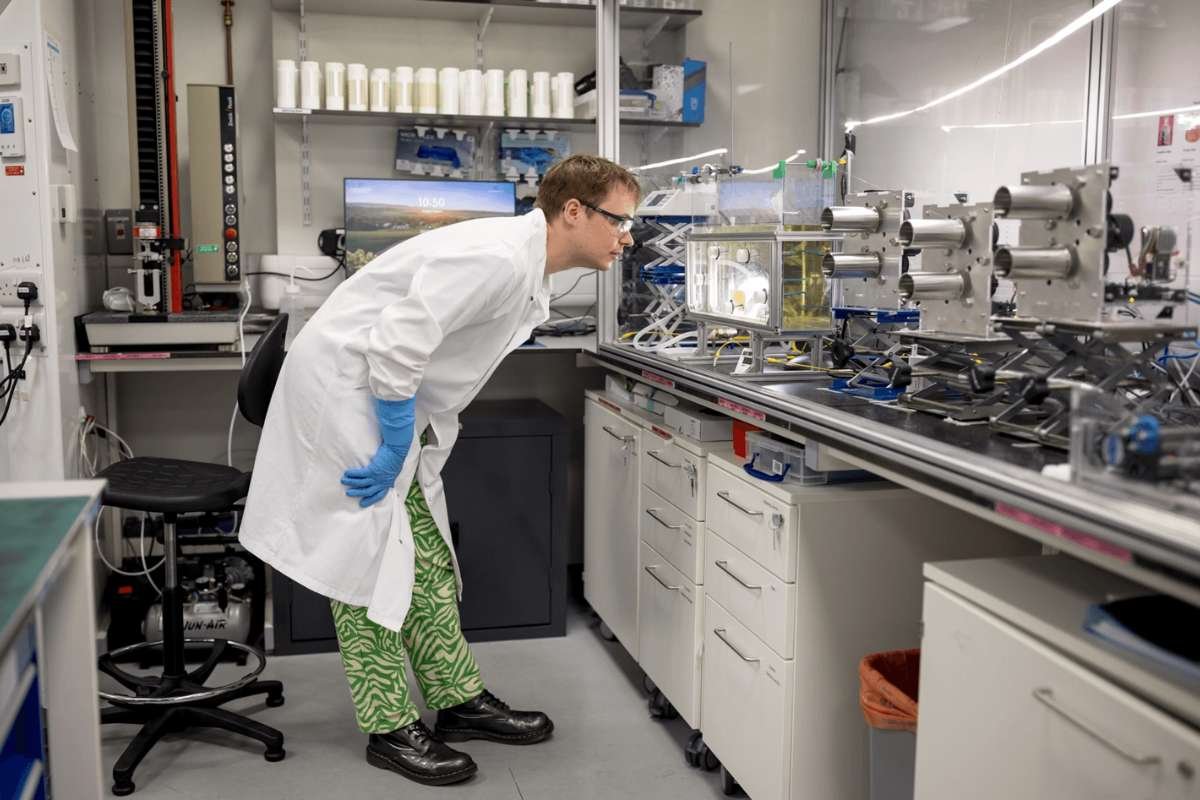London-based biotech startup Solena Materials has raised $6.7 million in a seed funding round to scale its production of AI-designed microbial protein fibres—a biodegradable, plastic-free alternative to traditional textile materials. The round was led by renowned investor Sir David Harding, alongside SynBioVen and Insempra, bringing Solena’s total funding to $10.8 million following a $4.1 million pre-seed round.
Founded in 2022 as a spinout from Imperial College London, Solena combines artificial intelligence and synthetic biology to design novel protein sequences that don’t occur in nature. These sequences are then produced by engineered microbes, enabling the startup to manufacture high-performance fibres for fashion and technical applications without relying on fossil fuels or environmentally damaging processes. CEO and co-founder James MacDonald says the funding will allow the company to scale production and partner with fashion brands, with the first commercial launch targeted within three years.
AI Meets Biomanufacturing to Reimagine Fabric
Solena Materials breakthrough lies in its use of proprietary deep neural networks and custom software to design protein fibres at the molecular level. These fibres can be tailored for strength, elasticity, biodegradability, and other performance metrics critical for sportswear, fashion, and industrial uses. Unlike conventional synthetic fibres that can take decades to decompose, Solena materials are fully biodegradable and sourced from renewable feedstocks, offering a significant reduction in environmental impact.
Co-founder Milo Shaffer emphasized the efficiency of the approach: “Computational design, rapid evaluation, and compatibility with existing textile technologies make our fibres scalable from lab to market.” Fellow co-founder Paul Freemont called the innovation a “paradigm shift,” noting that for the first time, scientists can design and build protein-based fibres from scratch, rather than relying on those found in nature.
Insempra CEO Jens Klein expressed alignment with Solena’s goals, calling the investment “a step toward a regenerative revolution” and praising the startup’s ability to combine sustainability with performance. The fashion industry, responsible for 10% of global carbon emissions, is under pressure to adopt cleaner materials, especially with emissions expected to rise by over 50% by 2030 if current consumption trends persist.
Fighting Fashion Waste and Plastic Pollution
Solena enters a textile industry plagued by pollution and waste. Currently, around 60% of global clothing is made from plastic-derived materials, most of which are not recycled. These materials release microplastics into the environment, contributing to pollution in soil, water, and even the human body. At the same time, textile waste is projected to grow by 60% from 2015 to 2030, with much of it being landfilled, incinerated, or exported to developing countries in a growing pattern of “waste colonialism.”
Solena Materials joins a new generation of biomaterial startups tackling this crisis. Similar companies like Newlight Technologies and Alt Tex are also exploring microbial solutions to replace plastics in textiles. With its new funding, Solena plans to expand its production capabilities, reduce manufacturing costs, and collaborate with industry partners. “We’re building a future where sustainable materials outperform traditional ones,” MacDonald said. “This is just the beginning.”
Visit CIO Women Magazine For The Most Recent Information.









